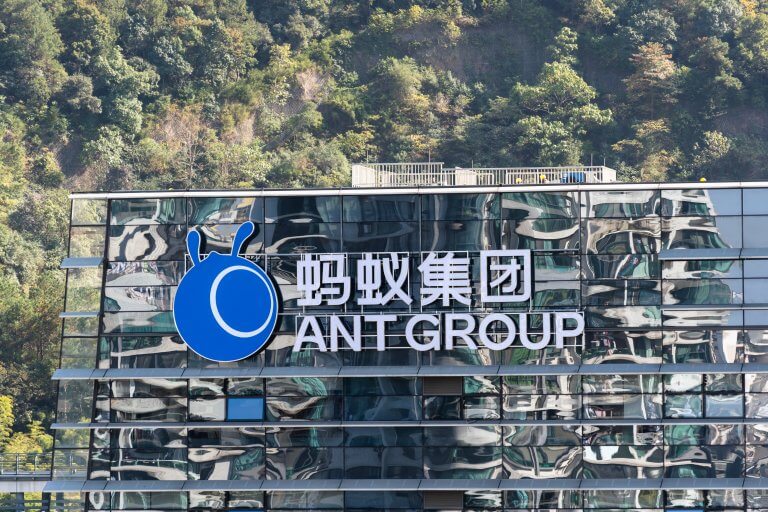Ant Group’s woes a boon for established insurers
February 8 2021 by Raymond Barrett
With Ant Group soon to be subject to the same oversight as traditional banks, established insurers in China are likely breathing a sigh of relief that a would-be digital disrupter has been brought to heel.
Several media outlets reported this week that Ant Group, formerly known as Ant Financial, had “agreed” to restructure its credit, investment and insurance operations into a financial holding company to resolve an ongoing saga with the China Banking and Insurance and Regulatory Commission (CBIRC).
The regulator shot down the high-flying digital payment giant’s IPO in November over fears that a lightly regulated lender with access to a billion potential customers posed a systemic risk to the Chinese economy.
Jack Ma’s Alibaba and its subsidiary Ant Group had grown so quickly precisely because Beijing had exercised a light touch, but going forward the fintech giant will be subject to the same capital requirements as banks.
Ant has been building out its insurance business in recent years through its Alipay platform, mostly through the distribution of products offered by partner insurers. Ant is estimated to hold around 13% of the online insurance market and its Xiang Hu Bao mutual aid platform — which offers health protection to lower income people, especially in rural areas — is believed to have signed up at least a 100 million customers since it was launched in 2018.
The fact that the Chinese government became unwilling to tolerate a digital maverick moving into a traditionally conservative sector suggests that insurance start-ups who take a loose approach to risk management may also suffer a similar fate.
Speaking at the Asian Financial Forum this January, CBIRC chairman Guo Shuqing noted that the financial sector will be subject to “prudential regulation” in the years ahead. In addition, with the deadline for implementation of the new IFRS 17 regime fast approaching, the regulatory burden facing the insurance sector is only set to increase.
Therefore, well-capitalised insurers with extensive internal compliance and control systems may be less likely to face sudden competition from digital giants such as Tencent, Ant or smaller insurtechs.
This is likely a relief to more “old school” insurers who rely on antiquated relics such as human beings to distribute their products — insurers still employ hundreds of thousands of agents across China.
In what may be a prescient sign of the road ahead, Yin Ming, the head of Ant’s insurance unit, resigned last month after five years on the job amid uncertainties over the direction of the business.
His destination? The Beijing-based Sunshine Property and Casualty Insurance.
How very old school.
-
Opinion: With AI risk growing up fast, be prepared for the losses as insurers get serious
- January 23
Insurance market is waking up to the rise of data centres and the simultaneous surge in demand created by advances in artificial Intelligence, but could it turn into a nightmare?
-
Opinion: Time for Asia’s fac market to hustle as infrastructure boom continues
- January 16
Projects in Vietnam, Malaysia, Thailand, China, Indonesia and Laos offer openings for the facultative (re)insurance market in 2026.
-
Opinion: I, Underwriter? An evitable conflict, or will 2026 see the first AI underwriter?
- January 9
Artificial intelligence is already encroaching on the underwriting sector, with the industry working to understand the implications on insured exposures and the regulatory landscape.
-
Opinion: A sinking feeling? P&I clubs needs to grasp the nettle, but choppy waters lie ahead
- December 12
Volume of claims finding their way into the International Group of P&I Club’s (IG) pool has made many clubs twitchy after it suffered its worst year ever in 2024.
-
QBE | Elevating customer experience, humanising claims: QBE Asia’s ‘Solutions in a Box’
Vastly improving turnaround times and personalising service delivery, QBE Asia’s award-winning, end-to-end bundled claims solutions is a game-changer for the insurance industry.
-
Beazley | What does cyber protection look like from day 1 to day 600 and beyond?
Cybersecurity is no longer just an IT concern, but a governance issue that belongs on the boardroom agenda.
-
Sedgwick | Preparing for the next storm
Insurance industry needs to recalibrate, invest in innovation and strengthen systems, talent and data practices.
-
Peak Re | From climate modelling to market opportunity: Forging a new clarity on Southeast Asia’s climate risk
Southeast Asia's protection gap: a crisis of clarity, not just capital

